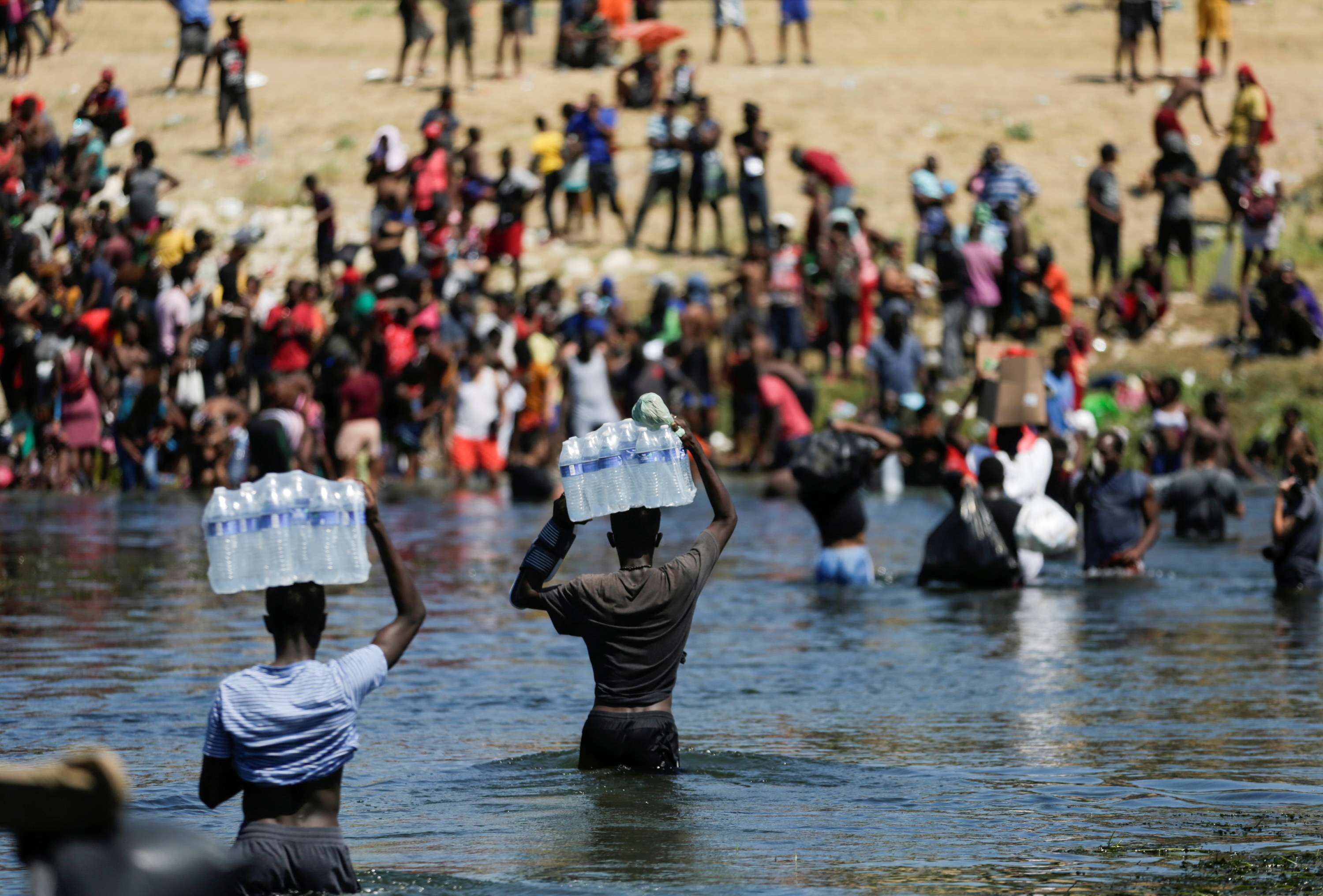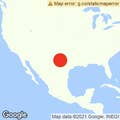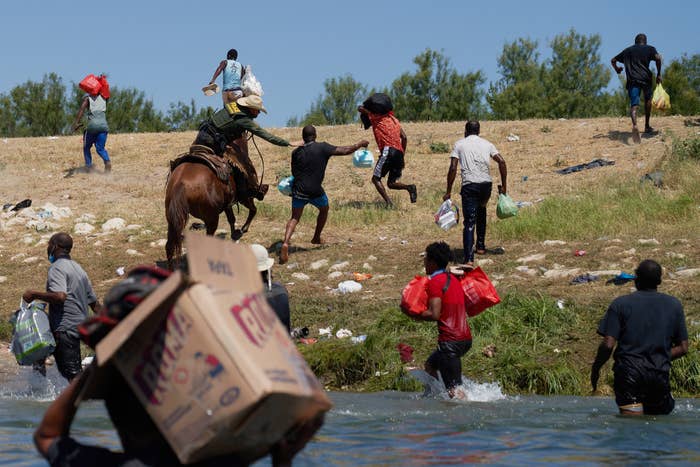
DEL RIO, Texas — Fear and desperation gripped a makeshift camp in Texas holding about 13,000 immigrants, most of them from Haiti, on Sunday amid food shortages, medical issues, and confusion as word spread that the Biden administration had begun deportation flights.
Over the past days, the immigrants arrived and set up under an international bridge in the US city of Del Rio after wading across the Rio Grande in hip-high water. They carried with them everything they have: clothes, food, and blankets packed into plastic bags and backpacks. Since then, water, food, and medicine have grown scarce as they use sheets and bamboo to avoid the rain and pounding sun.
On Saturday, immigrants waded back across the Rio Grande into Mexico’s Ciudad Acuña to make critical purchases. They say the supplies that US immigration authorities are providing are not enough.
But things suddenly changed for the worse on Saturday afternoon, when the Texas Department of Public Safety and Border Patrol stopped allowing immigrants who had left in search of provisions to cross back into the camp from Mexico.
Facing the prospect of being separated from their families or the people they came with, the immigrants from Haiti, the Dominican Republic, Cuba, and other nations, scrambled for a few hours on Sunday to find another section of the Rio Grande where they could safely cross. They finally found a point about a mile from the previous crossing, where the water was chest-deep but stagnant enough for them to safely make the journey. Many made it back to US soil, but it’s unclear if everyone did, and some may now be stranded in Mexico.
Lorvens, a 27-year-old Haitian, watched in desperation as his 1-year-old daughter was fighting a fever and diarrhea. Earlier in the day, he approached Border Patrol agents at the front of the camp and asked if they could do anything for his daughter. He was told there was no medicine to give out.
“This is worse than being in prison,” Lorvens told BuzzFeed News on Sunday. “As adults, this is something we can endure, but our children can’t.”
His daughter is not the only one who is sick, Lorvens said. Between laughter and shrieks from playing children, other kids were crying atop sheets and cardboard.
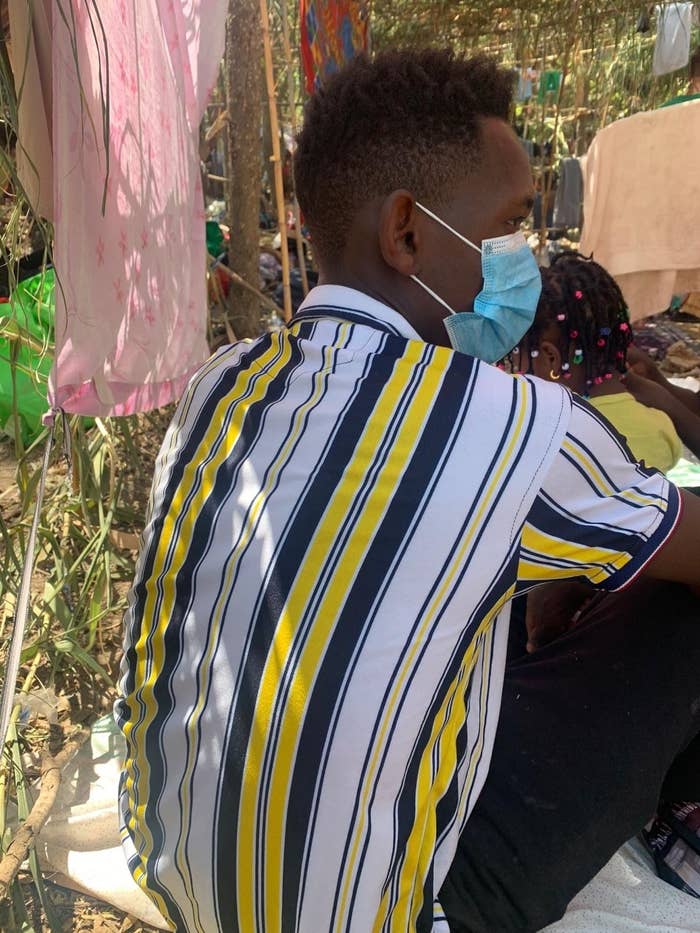
Lorvens, a skinny man with defined cheekbones, left Haiti in 2015 and made his way to Chile. For years, he tried to make a life there, but he wasn’t able to regularize his status. As a result, he worked long days for very little pay.
Frustrated, two months ago he decided to leave Chile with his wife and daughter and head to the US. As other Haitians in the camp told BuzzFeed News, he’d heard of immigrants from Haiti being allowed into the US. Sitting on a cardboard box and trash bag, Lorvens started to doubt whether any of it was true.
The news that DHS planned to soon start deporting people — the flights began Sunday — has started to dash their hopes as well.
“We walked through multiple countries and a jungle for two months to get here, for a better life,” Lorvens said. “And it may all be for nothing? They’re sending us to die.”
Last month, after a 7.2 magnitude earthquake in Haiti leveled homes and killed more than 2,200 people, the Biden administration temporarily paused deportations to the island. Many of the Haitians in Del Rio had already left for South America after a 2010 earthquake tore through the country. In addition to poor economic conditions, corruption grew, as did the power of gangs in Haiti. The political turmoil was made worse by the recent assassination of President Jovenel Moïse.
In a statement Sunday, the Department of Homeland Security said it was working swiftly to take "irregular migrants" into custody and being removed.
"The Biden Administration has reiterated that our borders are not open, and people should not make the dangerous journey. Individuals and families are subject to border restrictions, including expulsion," the statement said. "Irregular migration poses a significant threat to the health and welfare of border communities and to the lives of migrants themselves, and should not be attempted."
The US flew 327 Haitians from Del Rio to Port-au-Prince, Haiti, on three flights on Sunday, DHS said. The flights are expected to continue on a regular basis.
At the camp, Mayli, a 28-year-old father from Haiti, said that because there isn’t enough water, he gives his water bottle to his 2-year-old daughter. He drinks from the Rio Grande.
He has six siblings, and his parents to support back in his home country.
“I’m the one who has to take care of them,” Mayli told BuzzFeed News. “If they send me back to Haiti, I don’t know what will be of my life. There’s nothing for me there.”
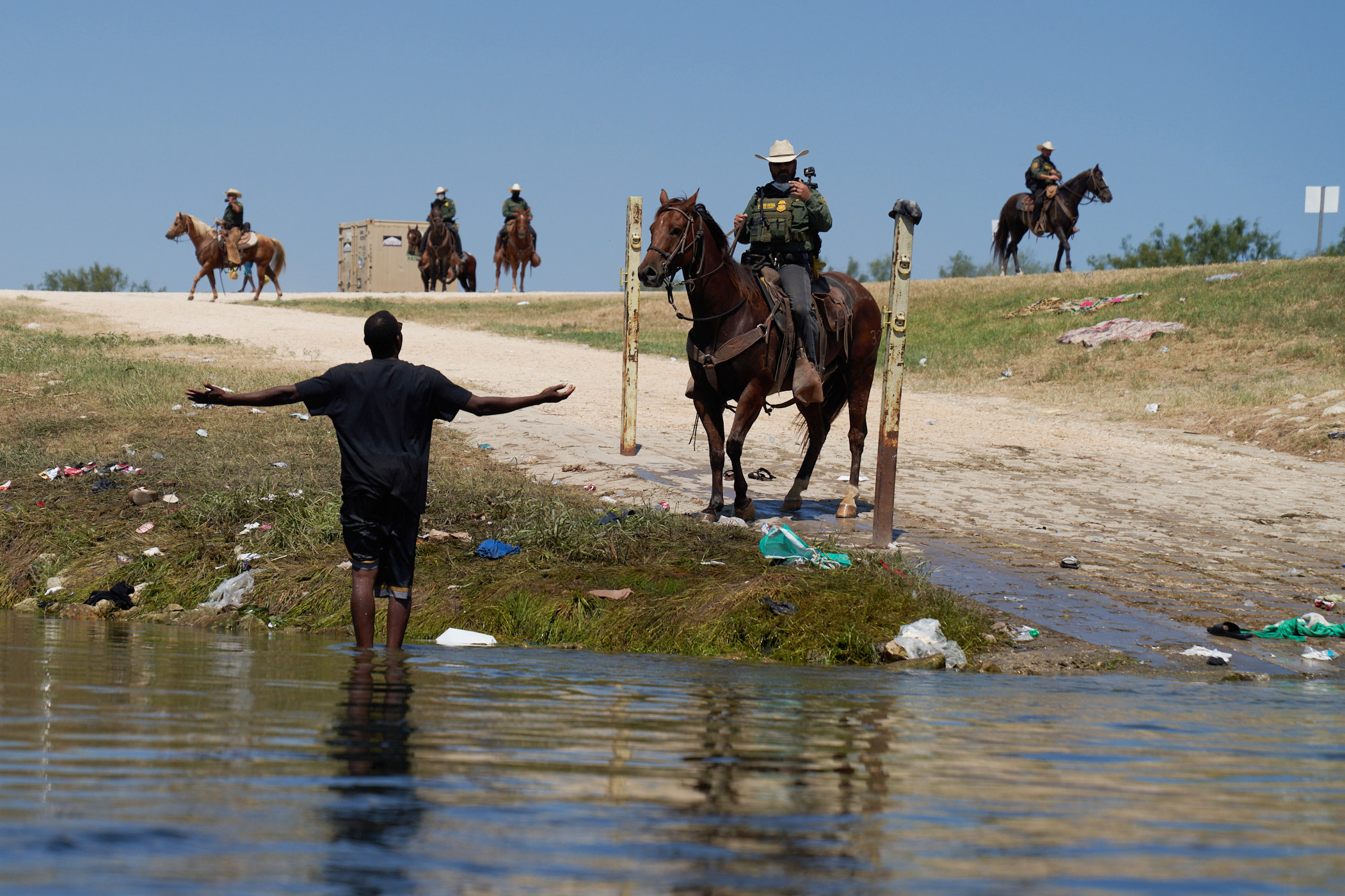
Mayli said he didn’t understand how the US is going to deport 13,000 people to Haiti. He wondered out loud whether the US was aware of the conditions they were deporting people to.
In March, BuzzFeed News reported that Department of Homeland Security officials acknowledged internally that deported Haitian immigrants “may face harm” upon returning due to violent crime and the political instability that has rocked the country.
President Joe Biden campaigned on a promise to end a Trump-era policy that forced asylum-seekers to wait in dangerous Mexican border cities for their cases to be completed. But the US Supreme Court refused to stop a lower court’s order requiring the government to restart that policy, though it is still not up and running.
Biden also chose to keep one of his predecessor's controversial policies. Using a pandemic health order, Title 42, the US has continued to quickly expel immigrants and asylum-seekers without giving them the chance to ask for protection. Mexico has agreed to take back immigrants expelled from Central America, but it has refused to accept Haitians. This led to the Biden administration sending some immigrants back to Haiti by plane.
In a statement, DHS said a "majority" of immigrants continue to be expelled under Title 42 and that undocumented people who can't be quickly ousted from the US would be placed in expedited removal proceedings. The US would continue to expel and deport immigrants to Haiti, Mexico, Ecuador, and Central America, DHS said.
Groups of parents on Sunday huddled around their phones reading reports of the looming deportation flights.
Eddy, 45, wondered if perhaps families would be allowed to stay in the US instead of being deported to Haiti. It had cost him thousands of dollars to make it to the US–Mexico border with his family.
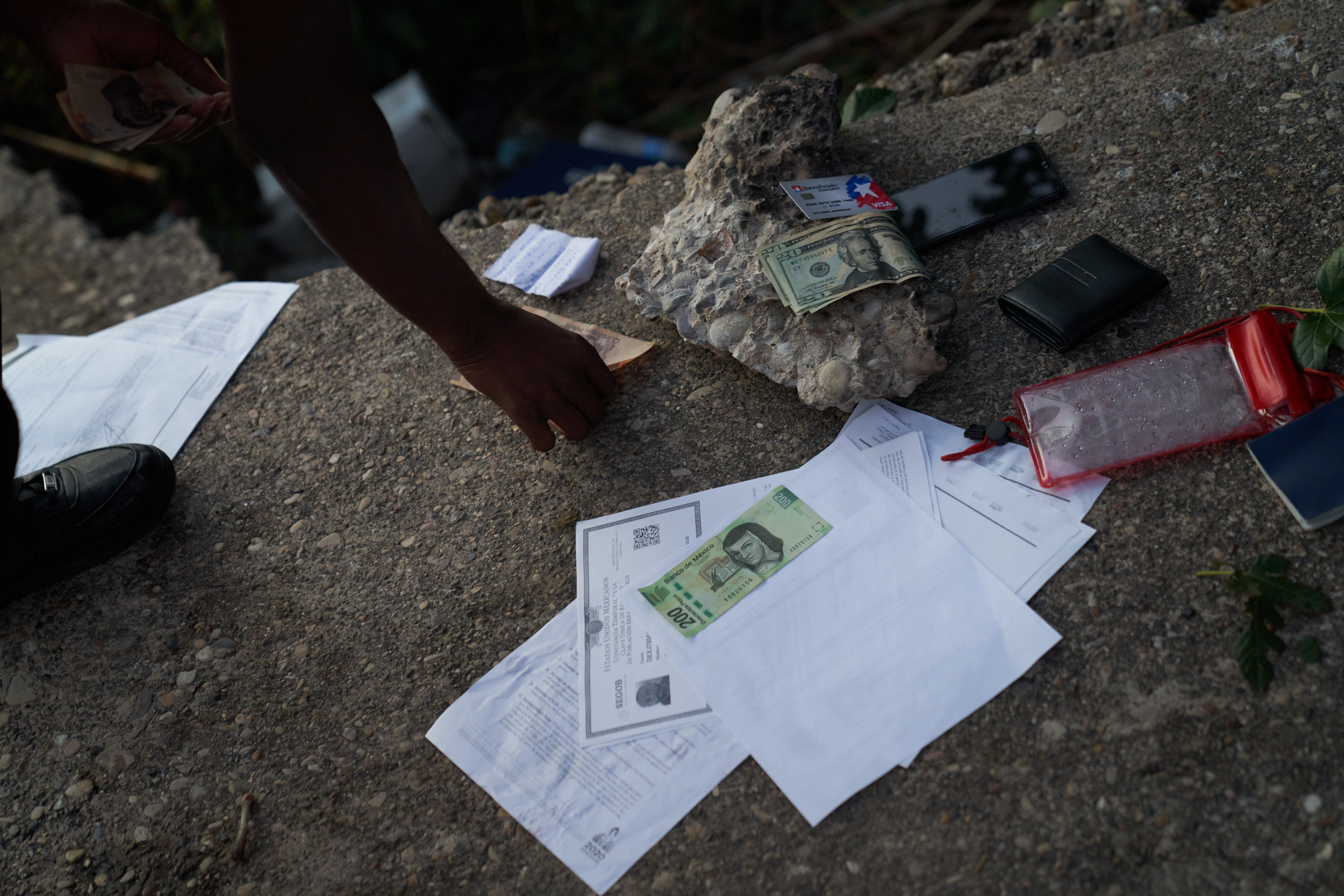
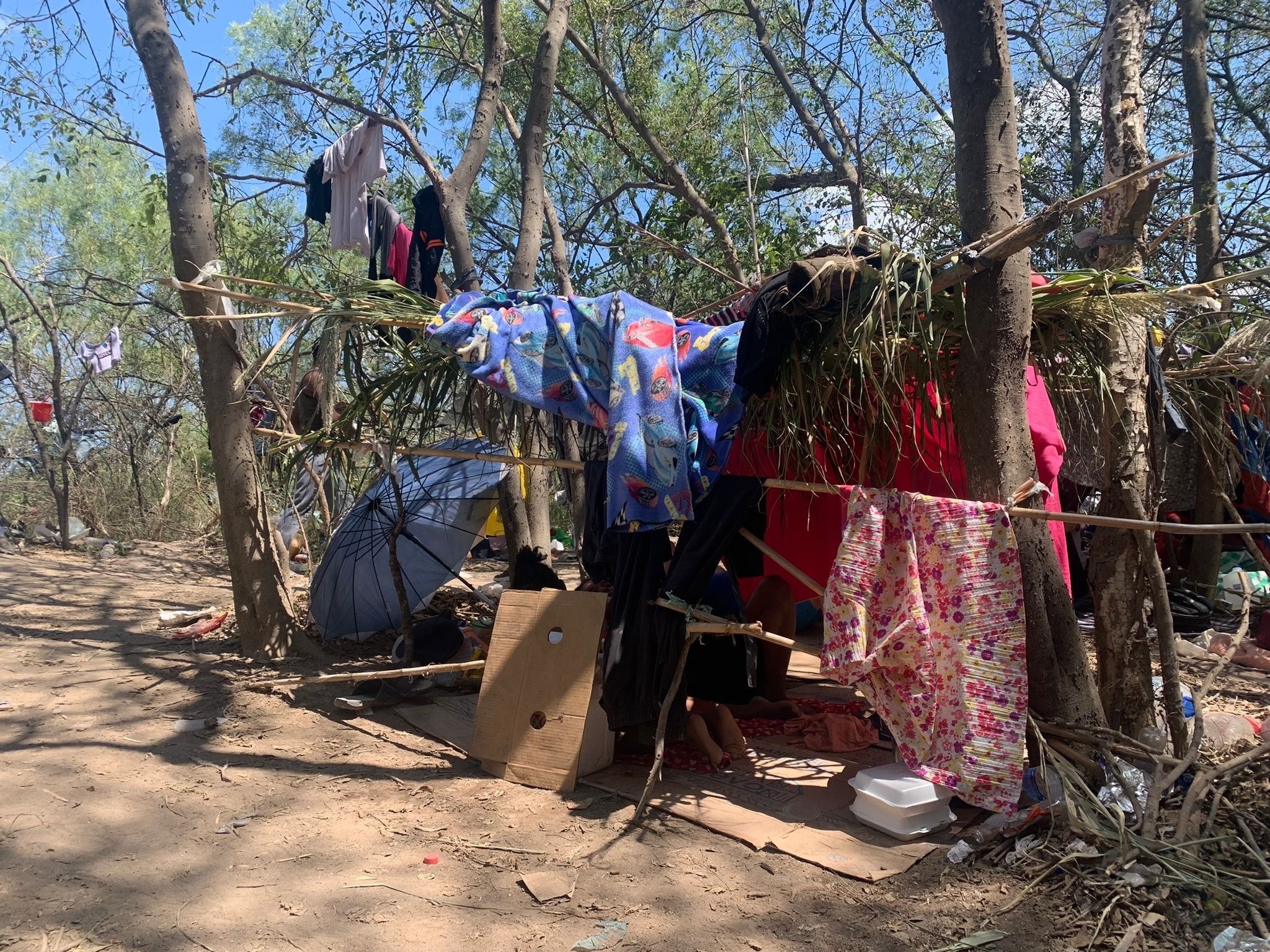
“I’ve heard of others from the camp who are in the US,” Eddy told BuzzFeed News. “Maybe we will also be lucky.”
At about 1 p.m. on Sunday, a line of immigrants waiting to get a taco wrapped in aluminum foil and a water bottle had formed underneath the bridge. There were piles of trash along a busy dirt path.
Border Patrol agents on horseback patrolled the camp, with state troopers and US National Guard members standing along its outskirts.
Ten minutes outside of the camp, Ron, 28, walked to the edge of the Rio Grande to temporarily cross back into Mexico get some more food for his pregnant wife. By then, Border Patrol agents had stopped allowing people to leave.
“I feel helpless,” Ron told BuzzFeed News. “I have a 1-year-old and a wife who is three months pregnant, and I can’t do anything for them.”
Like many of the other Haitians at the camp, Ron left his country years ago and tried to settle unsuccessfully in South America.
“We have to sleep in the dirt,” Ron said, adding he fears his wife could contract COVID-19. “At night it gets really cold, and then during the day, it’s really hot. I don’t know how much longer we can wait here.”
Like Lorvens, Mayli immigrated from Haiti to Chile four years ago, but it was difficult finding work that paid a living wage. Like other Haitians, he had heard that some of his compatriots were being allowed to stay in the US.
“I hope America takes pity on us,” Mayli said.
